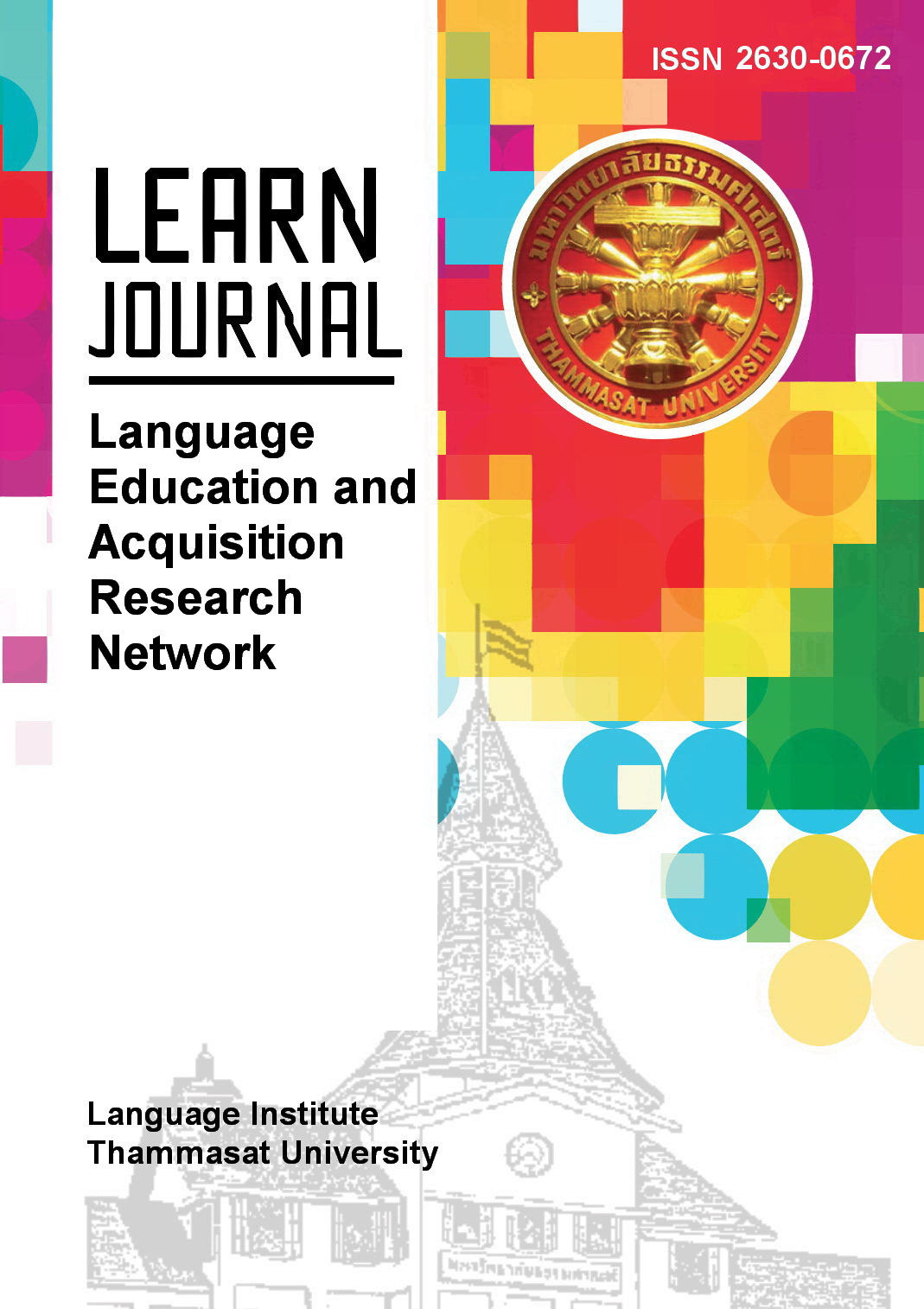Application of Swalesian Genre Analysis to Academic Writing Pedagogy: A Corpus Perspective
Main Article Content
Abstract
This short article reviews key corpus-based pedagogic initiatives in the spirit of the Swalesian tradition of genre analysis. Pedagogic genres covered include report writing, thesis writing, writing a grant proposal and legal essay writing. More recently, attention has been paid to the writing of research articles by postgraduate students for whom published articles are becoming a prerequisite for a PhD to be awarded. These pedagogic endeavours invariably commence from a top-down perspective. Genre moves are first identified followed by more bottom-up corpus searches for the identification of prototypical lexico-grammatical patterning for specific move structures. In a few cases, relevant sub-sections of freely available corpora, such as the Michigan Corpus of Upper-level Student Papers (MICUSP), are used. However, most pedagogic initiatives make use of self-compiled specialised corpora to meet the needs of students from a specific discipline. Genre-based research findings can also usefully inform classroom-based corpus activities.
Article Details
References
Anthony, L. (2019). Tools and strategies for data-driven learning in the EAP writing classroom. In K. Hyland & L. Wong (Eds.), Specialised English. New directions in ESP and EAP research and practice (pp. 179–194). Routledge.
Bhatia, V.K., Langton, N., & Lung, J. (2004). Legal discourse: Opportunities and threats for corpus linguistics. In U. Connor & T. Upton (Eds.), Discourse in the professions. Perspectives from corpus linguistics (pp. 203–231). John Benjamins.
Bianchi, F. & Pazzaglia, R. (2007). Student writing of research articles in a foreign language: metacognition and corpora. In R. Facchinetti (Ed.), Corpus linguistics 25 years on (pp. 259–287). Rodopi.
Cortes, V. (2007). Exploring genre and corpora in the English for academic writing class. The ORTESOL Journal, 25, 8–14.
Cotos, E., Huffman, S. & Link, S. (2015). Furthering and applying move/step constructs: Technology-driven marshalling of Swalesian genre theory for EAP pedagogy. Journal of English for Academic Purposes, 19, 52–72.
Cotos, E., Link, S. & Huffman, S. (2016). Studying disciplinary corpora to teach the craft of Discussion. Writing & Pedagogy, 8, 33–64.
Diani, G. (2012). Text and corpus work, EAP writing and language learners. In R. Tang (Ed.), Academic writing in a second or foreign language (pp. 45–66). Continuum.
Dong, J. & Lu, X. (2020). Promoting discipline-specific genre competence with corpus-based genre activities. English for Specific Purposes, 58, 138–154.
Durrant, P. & Mathews-Aydınlı, J. (2011). A function-first approach to identifying formulaic language in academic writing. English for Specific Purposes, 30, 58–72.
Flowerdew, L. (2015). Using corpus-based research and online academic corpora to inform writing of the discussion section of a thesis. Journal of English for Academic Purposes, 20, 58–68.
Flowerdew, L. (2016). A genre-inspired and lexico-grammatical approach for helping postgraduate students craft research grant proposals. English for Specific Purposes, 42, 1–12.
Flowerdew, L. (in press, 2022). Corpora for EAP writing. In E. Csomay & R. Jablonkai (Eds.), The Routledge handbook of corpora in English language teaching and learning. Routledge.
Kanoksilapatham, B. (2005). Rhetorical structure of biochemistry research articles. English for Specific Purposes, 24, 269–292.
Kanoksilapatham, B. (2007). Rhetorical moves in biochemistry research articles. In D. Biber, U. Connor & T. Upton (Eds.), Discourse on the Move. Using corpus analysis to describe discourse structure (pp. 73–119). John Benjamins.
Mizumoto, A., Hamatami, S. & Imao, Y. (2017). Applying the bundle-move connection approach to the development of an online writing support tool for research articles. Language Learning, 67, 885–921.
Parkinson, J. (2017). The student laboratory report genre: A genre analysis. English for Specific Purposes, 45, 1–13. https://doi.org/10.1016/j.esp.2016.08.001
Samraj, B. (2016). Research articles. In K. Hyland & P. Shaw (Eds.), The Routledge Handbook of English for Academic Purposes (pp. 403–415). Routledge.
Swales, J. M. (1990). Genre Analysis: English in academic and research settings. Cambridge University Press.
Tribble, C. (2002). Corpora and corpus analysis: New windows on academic writing. In J. Flowerdew (Ed.), Academic discourse (pp. 131–149). Longman.
Weber, J. J. (2001). A concordance- and genre-informed approach to ESP essay writing. ELT Journal, 55(1), 14–21.


